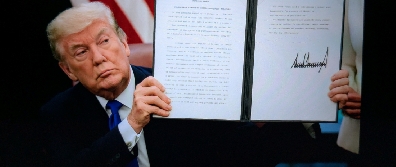Ethics in 2019
Public Discourse “If It Bleeds, It Leads”
The media is not what it once was. Gone are the days when neighbors and families gathered around a tv screen at home, the local diner, or bar to hear breaking news or catch up on recent developments. The American public receives this information on multiple platforms instantaneously and daily, whether or not they intend to. From the Varsity Blues scandal to Michael Cohen’s testimony before Congress on February 27, 20193, such content is broadcast over Twitter, Facebook, Snapchat, Instagram, YouTube, and even instant messaging apps, such as WhatsApp and Kik. The pervasive dissemination of information provides even the least technologically advanced citizens real time pushed updates regarding the political, social, and cultural climate. These advances in technology and online media over the years have made it easier for the public to be informed and voice their opinions regarding crucial issues that affect our daily lives. Social media has been recognized by the United States Supreme Court as the new public square. It has also allowed almost any influencer to try a case in the court of public opinion.
Duty to Maintain Technological Competency
The Rules of Ethics require counsel to maintain technological competency. Whether it concerns state and federal electronic filing, efficient word processing and document editing tools, the security of cloud data, or the niceties of cellular communication; counsel must have adequate technological knowledge to competently represent clients. Rule 1.01 of the Texas Disciplinary Rules of Professional Conduct requires counsel to be competent. Commentary expressly mentions this includes competence in relevant technology. While the most obvious application of this rule in the criminal context will involve competence in computer and cell phone technology with regard to search warrants, subpoenas and motions to suppress; it also includes competence in public discourse and the extent that client’s cases are publicized on social media.
Public Comment to Correct Publicity Prejudicing an Adjudicative Proceeding
Counsel must be aware of the extent to which a client’s case is covered on social media sites that disperse immediate and sometimes harmful information. There is no longer a big or small case. Every case has the potential to “break the internet;” or receive such widespread coverage that your client may be convicted before even faced with formal charges. Entire shows are dedicated to hour long documentaries on pending cases—20/20, Dateline, and Discovery ID are only a few examples. Innumerable podcasts cover every detail of pending cases as well. This type of media can “go viral”, publicizing your client’s case world-wide; 24/7. In this environment, counsel must consider whether the silent and stoic response, that once assured that a story would not have “legs,” is any longer effective.
Allowing such pervasive media coverage to go unanswered may, in fact, be ineffective. A lawyer may not make a public statement that will have a substantial likelihood of materially prejudicing an adjudicative proceeding. The goal of this rule is to prevent a lawyer from influencing a trial’s outcome or prejudicing the jury venire. A lawyer cannot make a extrajudicial statement that a reasonable person would expect to be dispersed by means of public communication. But this is counter balanced by the fact the rule recognizes that a lawyer can make a statement for public dissemination of it is made to counter the “unfair prejudicial effect of another public statement.”
The phenomenon of pervasive electronic dissemination of case information raises important questions regarding attorneys’ ethical duties while advocating for their clients in the public realm. For instance, what actions may an attorney take when attempting to correct false information disseminated about their client? Do public pre-trial statements by the prosecution violate the Fair Trial vs. Free Discourse dichotomy? Is it appropriate for attorneys to publicly vouch for their clients? Do we, as attorneys, have a duty to wage a public defense in addition to the one we present in the courtroom? Are attorneys allowed to provide opinions regarding cases in which they are not counsel? Should they be allowed? When should judges issue gag orders in this environment? When does a client effectuate a waiver of attorney- client privilege in a statement to the media? These are just some of the ethical issues counsel faces in the electronic media rich environment. We will also cover the broader Texas attorney-client privilege, the ethical rules that govern conduct of lawyers in Texas federal courts, conflicts of interest both in multiple representation and regarding professional self-interests, and the disclosure required of federal prosecutors in Texas under the ethical rules. In addition, we will consider whether how we treat counsel who are women, minorities, or who are differently abled or oriented is governed by the Texas Rules. This presentation constitutes one attorney’s view on these crucial issues, and how we as criminal defense attorneys, can best advocate for our clients’ interests while protecting our own professional integrity.
American Bar Association Model Rule (Model Rule) 1.3 serves as a starting point in the analysis: “A lawyer shall act with reasonable diligence and promptness in representing a client.” Sounds easy enough to follow—provide zealous representation, and don’t slack off. But just how far this underlying rule allows attorneys to go in their representation has been highly contested. With respect to public comments by attorneys involved in criminal proceedings, ABA Rule 3.6 is even more instructive:
“A lawyer who is participating or has participated in the investigation or litigation of a matter shall not make an extrajudicial statement that the lawyer knows or reasonably should know will be disseminated by means of public communication and will have a substantial likelihood of materially prejudicing an adjudicative proceeding in the matter.”
The rule identifies types of public communication that do not constitute a violation of this rule:
“Notwithstanding paragraph (a), a lawyer may state: (1) the claim, offense or defense involved and, except when prohibited by law, the identity of the persons involved; (2) information contained in public record; (3) that an investigation of a matter is in progress; (4) the scheduling or result of any step in litigation; (5) a request for assistance in obtaining evidence…; [and] (6) a warning of danger concerning the behavior of a person involved….”
Additional permitted disclosures in criminal cases are:
“(i) the identity, residence, occupation and family status of the accused; (ii) if the accused has not been apprehended, information necessary to aid in apprehension of that person; (iii) the fact, time and place of arrest; and (iv) the identity of investigating and arresting officers or agencies and the length of the investigation.”
Finally, 3.6 allows a lawyer to make statements that will protect the client from prejudice caused by publicity:
“a reasonable lawyer would believe is required to protect a client from substantial undue prejudicial effect of recent publicity not initiated by the lawyer or the lawyer’s client.”
This exception opens the door to any response necessary to neutralize the prejudice. In almost every federal case, the U.S. Attorney’s Office or Department of Justice will issue a press release. These press releases seldom are limited in scope to the exceptions for public comments. Coming from such an authoritative source, they appear to be a violation of the rule prohibiting a statement in the media that has a substantial likelihood of prejudicing an adjudicatory proceeding. They are guaranteed to lead the news.
Recognizing that public opinion is often shaped by media heads and outlets that persistently analyze the actions of public officials, attorneys, and the like, it is imperative to ensure prosecuting attorneys don’t “cross the line” when issuing public commentary. Counsel should correct any misimpression these press releases foster and attempt to cure the prejudice they cause. Thus, in the current environment, counsel may need to issue a statement to level the playing field after a prosecution press release. It is notable that in Special Counsel Robert Mueller’s tenure as Independent counsel he issued no press release in his indictment, conviction, or guilty pleas of thirty-four people and three.
Read more about ethics in 2019 at Goldstein, Goldstein, Hilley & Orr.
Original article can be found here: https://www.goldsteinhilley.com/presentations-lectures/ethics-in-2019/














Comments